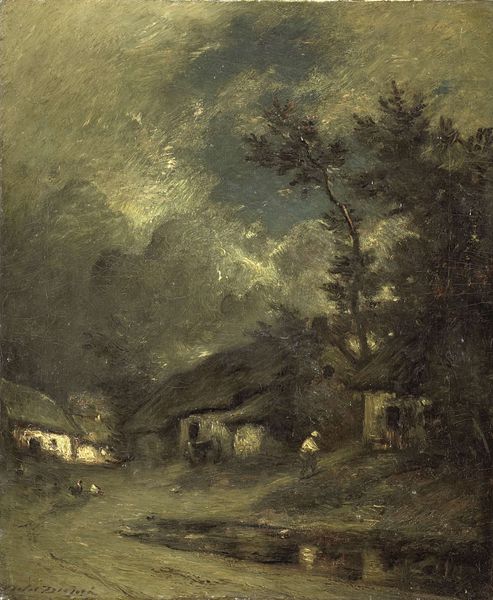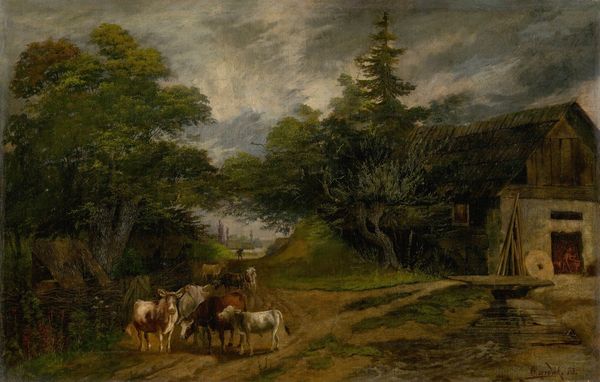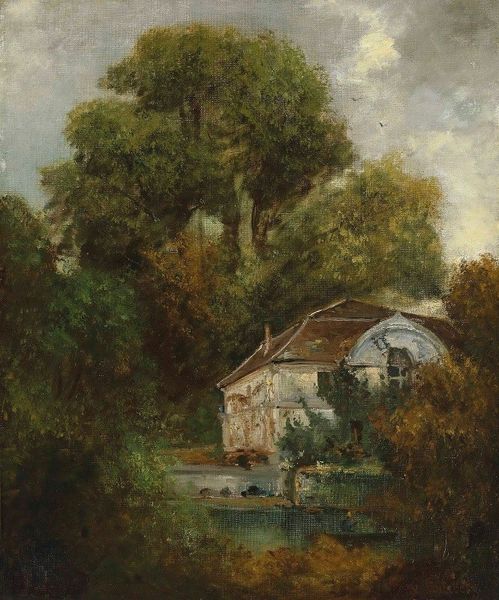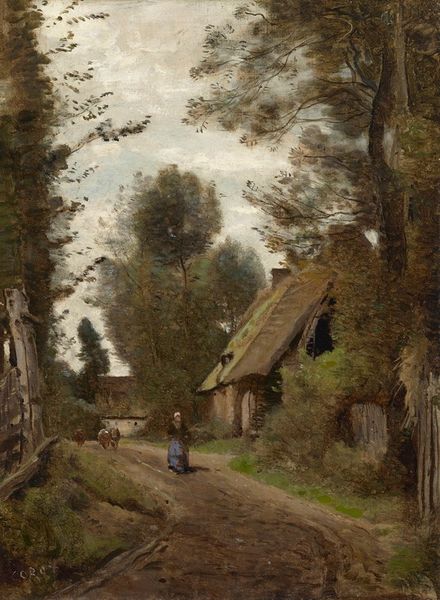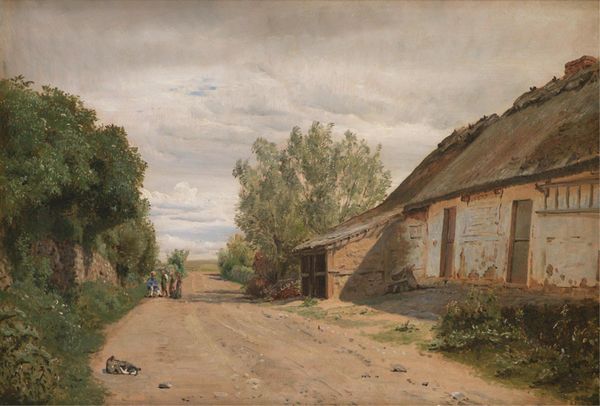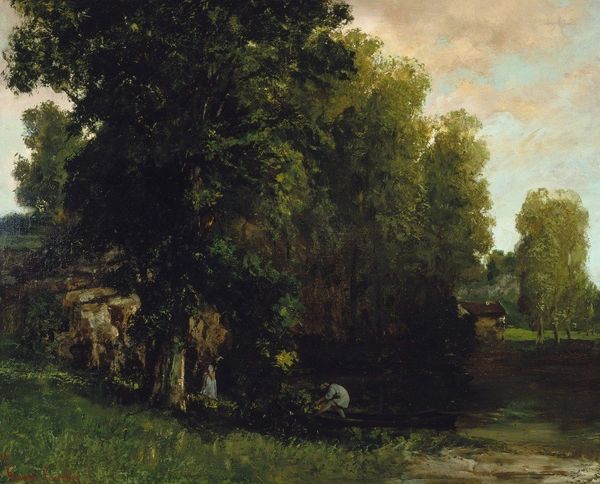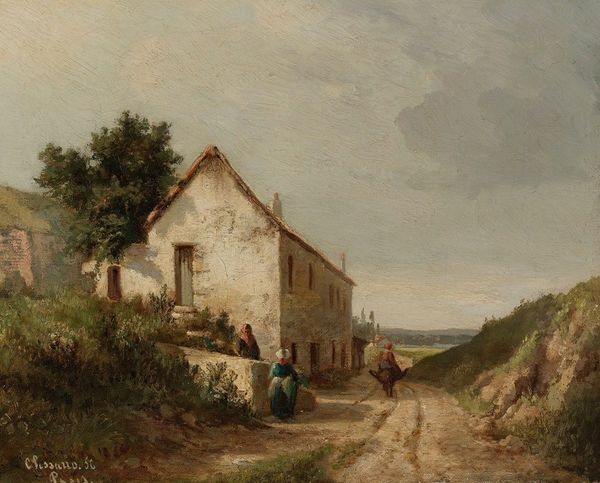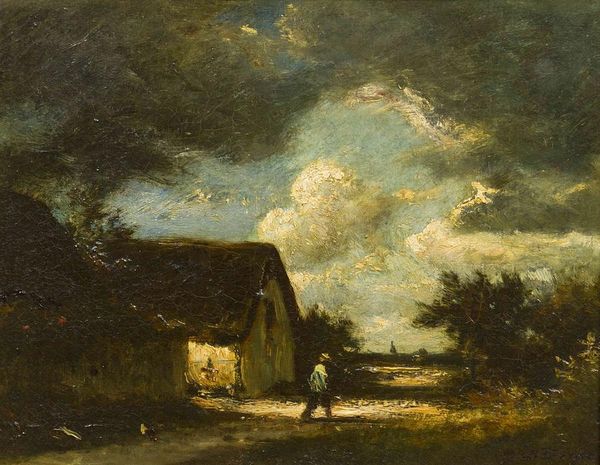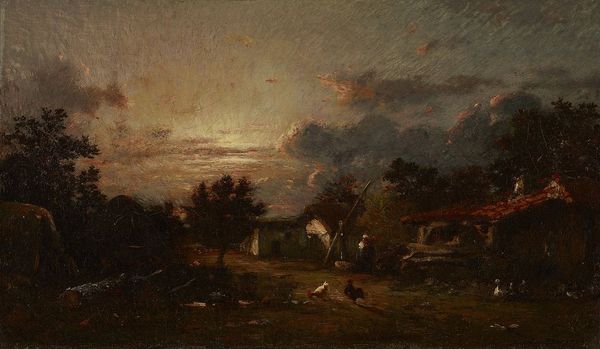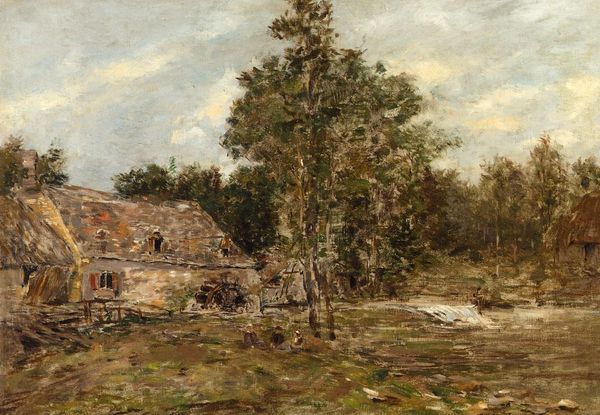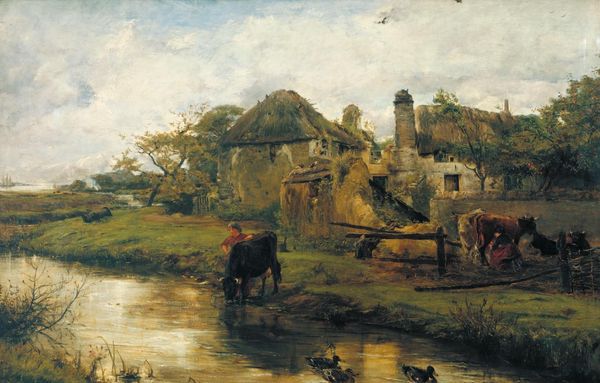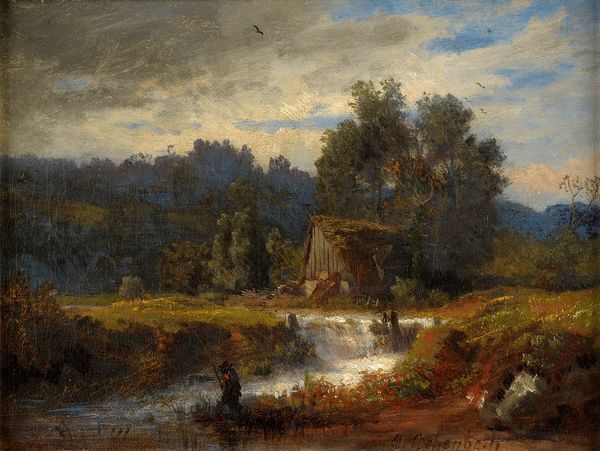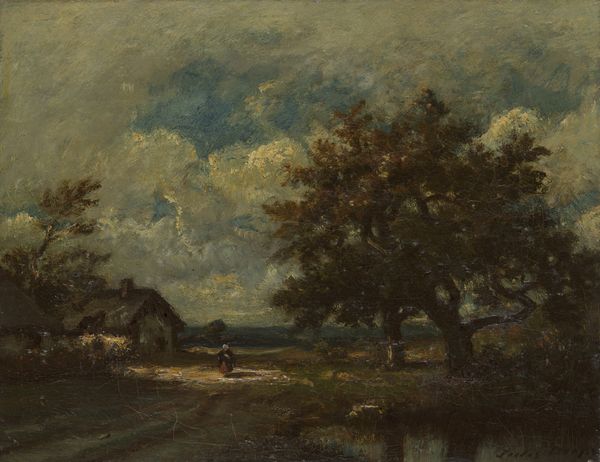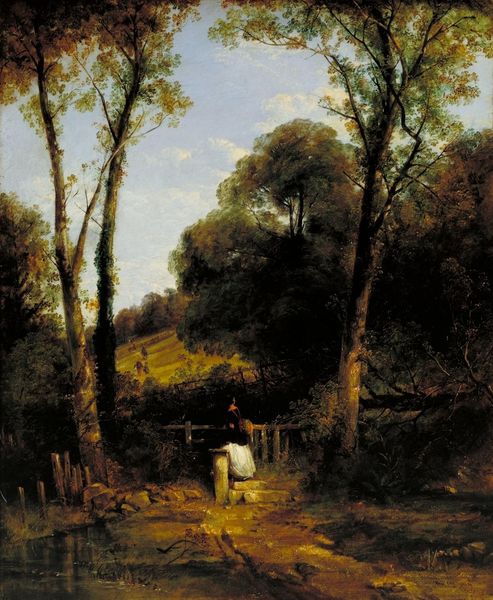
painting, plein-air, oil-paint
#
painting
#
impressionism
#
plein-air
#
oil-paint
#
landscape
#
impressionist landscape
#
oil painting
#
genre-painting
Copyright: Public Domain: Artvee
Curator: Charles-Francois Daubigny painted "Le Tonnelier" in 1872 using oil paints to create a small glimpse into rural life. Editor: It evokes such a sense of serenity. The muted color palette, especially the greens and browns, offers a tranquil view. I want to step right in. Curator: Daubigny’s paintings can be read as an elegiac representation of the rural population's lifestyle and its social structures being replaced by the burgeoning modernity of the era. Editor: And within this reading, it seems the artist wanted to show the steadfast nature of agrarian life. A barrel maker signifies a self-sufficient life of localized economies with people directly fulfilling specific needs in contrast to new modes of industrialized production that pulled laborers into centralized economies. Barrels were once a key part of agriculture and fishing so Daubigny immortalized a fundamental support. Curator: Exactly. Daubigny lived during massive industrialization in France and these rapidly changing economic paradigms, while undoubtedly offering potential for societal and economic growth, carried with it the baggage of a mass of disenfranchised labor forces and a growing schism between city and country. His focus on laborers suggests his resistance. Editor: Look at how he employs light, filtering the sunshine as a sacred blessing on the landscape, but what about the darkness, particularly that massive tree looming in the center? Does that carry an ominous feeling to you? Curator: Well, there is a definite interplay of light and shadow here that invites that feeling, but perhaps the dark areas point to social disparities that accompany modernization. I see the interplay between a nostalgia and underlying acknowledgement that these old ways are slowly fading into the background and being overshadowed by a new future. Editor: Daubigny reminds us that even as the world charges forward, it’s valuable to maintain our understanding of where we come from. Curator: Indeed. Daubigny provides a moment for reflection on our roots.
Comments
No comments
Be the first to comment and join the conversation on the ultimate creative platform.
